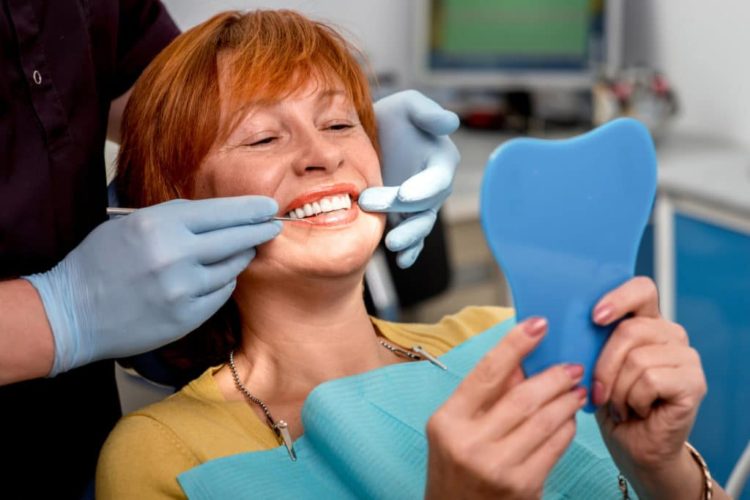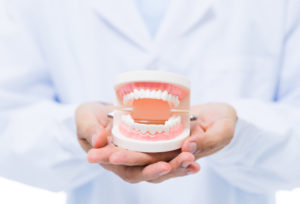Dentures & Partials
What Are Dentures?
Dentures are prosthetic devices designed to help patients without teeth chew food and improve speaking habits. Additionally, dentures improve the patient’s facial aesthetics and self-esteem. The absence of teeth can also lead to a sunken, collapsed appearance to the mouth-area. By restoring the physical presence of teeth, Dr. Garza can correct this malformation. Furthermore, the patient may be seen more “normally” according to aesthetic standards.
Who Is A Good Candidate For Dentures?
If you are missing multiple teeth, or even a full set, and cannot afford dental implants, you may be a good candidate for dentures. People who find it hard to chew food and struggle to speak due to their loss of teeth may find that dentures provide a great solution to their problems. You may be a good candidate for dentures if you:
- Suffer from sever gum disease.
- Have rotten or infected teeth.
- Feel self-conscious about the appearance of your smile.
- Are missing teeth.
If you fit any of the descriptors above and feel as though dentures may be a viable option for you, contact Dr. John A. Garza today for your consultation.

Types Of Dentures
 There are three types of dentures:
There are three types of dentures:
- Complete Dentures – Patients who have lost all or most of the teeth on either of the two arches of the mouth (maxillary – top and mandibular – bottom).
- Fixed Partial Dentures – Most patients missing only a few teeth opt for fixed partial dentures (Crowns and Bridges). These must be precisely installed, especially when in between healthy teeth.
- Removable Partial Dentures – Removable partial dentures are normally for patients who cannot have fixed dentures. Mainly because they have lost too many teeth for fixed dentures, but too few for full dentures.
Dr. Garza can use mini or full sized implants to secure your loose denture, so you can eat that apple!
Common Denture Problems
A frequent issue with dentures is their ability to remain in place during usage. We rate these on a series of three principles:
- Support – The denture may have a tendency to clasp tighter and tighter to the gums as the mouth chews food. The better the support, the less likely the denture is to move vertically closer to the arch upon which it is situated.
- Stability – Movement in the horizontal plane, sometimes described as “slipping” front to back or side to side, can be hazardous to the patient. The quality of denture base is responsible for preventing movement with good continuous contact with the edentulous crest. However, this is heavily dependent on the patient’s innate oral anatomy.
- Retention – This is the principle that describes the tendency of the denture to move vertically away from the gums, into the lumen of the mouth. This is where we test the craftsmanship of the denture, as the better the intaglio (inside of denture) copies the oral topography, the more effective the seal is.
Choosing A Dentist For Your Dentures
These principles are heavily reliant on the meticulous nature of the denture’s creation. Generally speaking, we recommend a denturist or prosthodontist over a dentist, with the exception of those who have exceptionally more experience and detail. Maxillary dentures tend to achieve better unification with the toothless gums due to the improvement in suction from the smooth surface. However, mandibular dentures are much more effective if the patient still retains some teeth.
SCHEDULE AN APPOINTMENT FOR A COMPLIMENTARY CONSULTATION.

